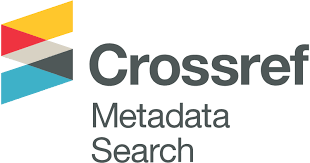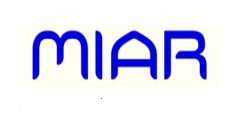
Guidelines for Reviewers
The Journal of Languages & Translation follows the Double Blinded Review process under the Peer Review. In this process, both the reviewer and the author remain anonymous to each other.
BEING A REVIEWER
The role of the reviewer is vital and bears a great responsibility in ensuring the integrity of the scholarly record. Every reviewer is expected to perform manuscript evaluation in a timely, transparent, and ethical manner. Potential reviewers should meet the following criteria:
- Hold a PhD
- Are experienced scholars in the field of the submitted paper.
- Hold an official and recognized academic affiliation.
- Have relevant experience and have a proven publication record in the field of the submitted paper.
- Potential reviewers should provide the editor with personal and professional information that is accurate and a fair representation of their expertise, including verifiable and accurate contact information.
Notice that registration and access are required for the reviewing process.
https://www.asjp.cerist.dz/
Only after registration, reviewers will have an ASJP account through which they perform their expertise.
If you are interested, please fill out the Reviewer Application Form in the announcement section.
https://journals.univ-chlef.dz/index.php/jlt/announcements
We will respond to your inquiry shortly.
Professional Responsibility
When approached to review, agree to review only if you have the necessary expertise to assess the manuscript and can be unbiased in your assessment. It is better to identify clearly any gaps in your expertise when asked to review.
Competing interests
Ensure you declare all potential competing, or conflicting, interests. If you are unsure about a potential competing interest that may prevent you from reviewing, do raise this.
Timeliness
It is courteous to respond to an invitation to peer review within a reasonable time frame, even if you cannot undertake the review. If you feel qualified to judge a particular manuscript, you should agree to review only if you are able to return a review within the proposed or mutually agreed time frame. Always inform the editor promptly if your circumstances change and you cannot fulfil your original agreement or if you require an extension.
CONDUCTING A REVIEW
Reviewers perform a blind review of every single submitted manuscript based on a set of criteria, among which are originality, timeliness, interest and importance of the topic, proper language, and relevance to the journal’s readership.
Confidentiality
Confidentiality is a key to expertise. Respect the confidentiality of the peer review process and refrain from using information obtained during the peer review process for your own or another’s advantage, or to disadvantage or discredit others.
Suspicion of ethics violations
If you come across any irregularities with respect to research and publication ethics do let the editor know.
A reviewer should call to the editor's attention any substantial similarity or overlap between the manuscript under consideration and any other published paper of which they have personal knowledge.
Language and style
Remember it is the authors’ paper, so do not attempt to rewrite it to your own preferred style if it is basically sound and clear; suggestions for changes that improve clarity are, however, important. In addition, be aware of the sensitivities surrounding language issues that are due to the authors writing in a language that is not their first or most proficient language, and phrase the feedback appropriately and with due respect.
Suggestions for further work
It is the job of the peer reviewer to comment on the quality and rigour of the work they receive. If the work is not clear because of missing analyses, the reviewer should comment and explain what additional analyses would clarify the work submitted. It is not the job of the reviewer to extend the work beyond its current scope.
PREPARING A REPORT
Reviews should be conducted objectively. Personal criticism of the author is unacceptable. Be objective and constructive in your review, providing feedback that will help the authors to improve their manuscript.
The editor requires a fair, honest, and unbiased assessment of the strengths and weaknesses of the manuscript. Journal of Languages & Translation requires reviewers to provide confidential comments to the editor as well as comments to be read by the authors. The journal also asks for a recommendation to accept/revise/reject; any recommendation should be congruent with the comments provided in the review.
The reviewers are provided with an evaluation form available on the platform that determines the criteria of judgment on the paper’s originality, method and data analysis, clarity of findings and discussion, referencing, and documentation.
The review report should also include general comments to the editor-in-chief and both general and specific anonymous comments to the author(s) that will be transmitted by the editor-in-chief.












